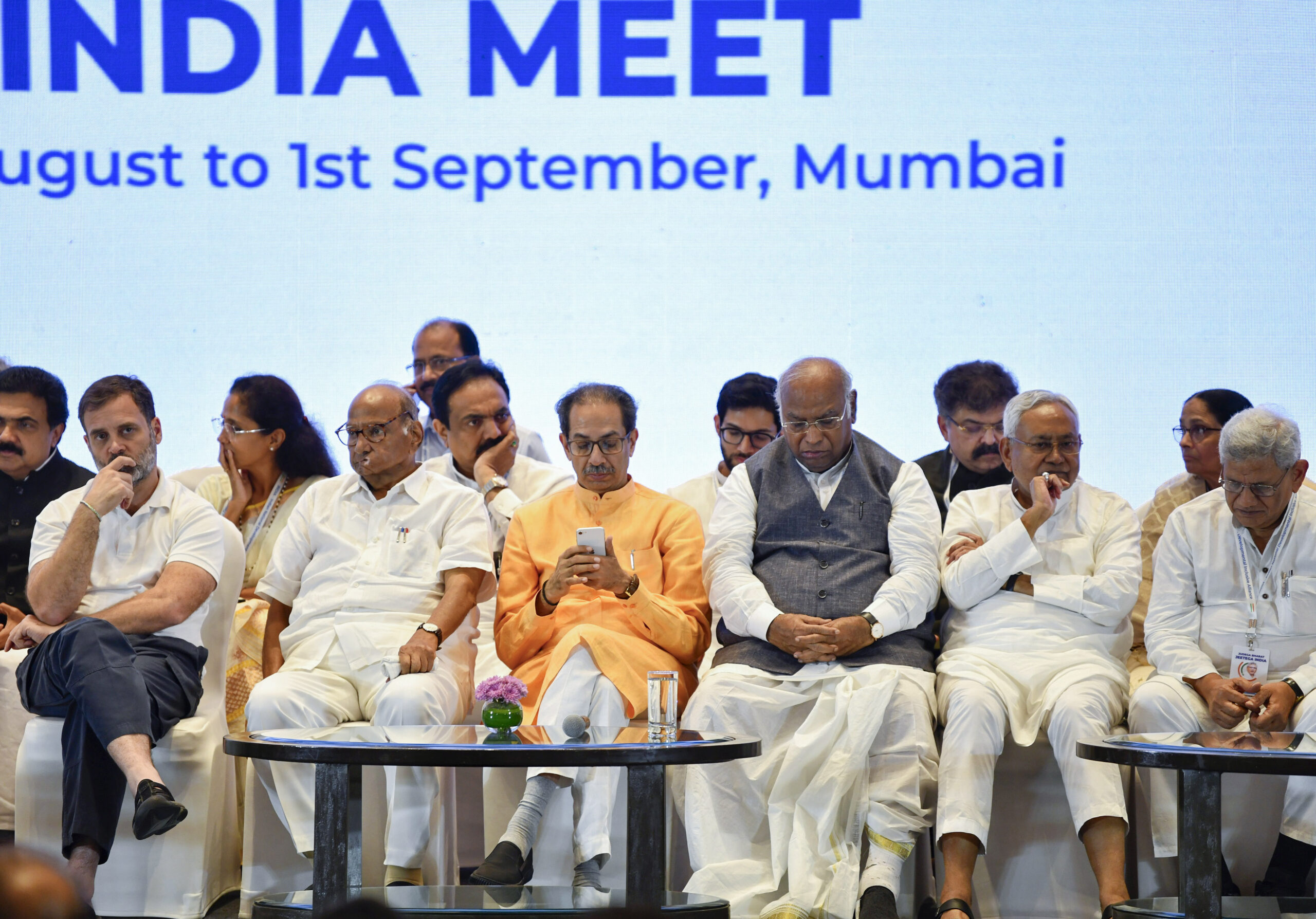


The poor performance of the Congress in the assembly elections reflected in the fourth meeting of Indian National Developmental Inclusive Alliance (I.N.D.I.A) that was held in Delhi on Tuesday.
The 2.5-hour meet also saw alliance partners discussing the ‘problems’ that Congress was going to face in states where the ‘smaller’ parties were in power.
After the Congress rout in Madhya Pradesh, Chhattisgarh and Rajasthan, it was widely anticipated that Congress’ bargaining power in the INDI alliance discussion table would be greatly reduced. And that is what exactly happened.
The 28-party alliance, which was meeting for its fourth meeting, saw ‘smaller’ parties making it clear that they are not going to surrender their claims for seats in favour of the Congress in states where they have a much better hold.
Similarly, on the issues of the Prime Ministerial face, it was decided by the alliance partners that the same would be decided by the MPs who win the 2024 general election.
This clearly indicates the unease among the alliance partners to agree on one uniform face to take on Prime Minister Narendra Modi. It is also being seen as a red-flag for Congress as it now cannot take for granted that the alliance partners will agree to a Congress PM in case the alliance wins.
To be sure, the party’s most likely face for PM, Rahul Gandhi has made it abundantly clear that he is not in the running for the PM’s chair in case the alliance wins the 2024 polls.
Sources told the Daily Guardian that concerns on seat adjustments were especially raised by the Aam Aadmi Party (Punjab and Delhi), Samajwadi Party (Uttar Pradesh) and Bihar (Rashtriya Janata Dal) apart from parties that are strong in the Southern states of India- Karnataka, Tamil Nadu, Kerala and Telangana.
To amicably settle the seat sharing issues and arrive at some form of consensus, it was decided among the leaders of the 28 parties that state leaders from the alliance would first discuss the seat sharing formula amongst themselves and in case they are not able to arrive at a common ground, the central leadership of the respective parties will intervene to resolve the political knot.
While the issue of how the parties will arrive at a please-all seat sharing engagement is an ‘innate’ issue for the alliance, the fact that Congress could not win in the three Hindi belt states has led to further problems for the alliance as now the Congress is not in a position to dictate its term to other alliance members in order to safe-guard its own party’s interests.
In his post meet media interaction, Congress party president Mallikarjun Kharge, perhaps unintentionally brought to fore another limitation of the alliance- of people still not recognising the alliance and its intentions. Kharge, during his short speech, announced that the alliance will do 8-10 public meetings across the country so that people can start recognising the alliance and its members. It is pertinent to mention that the 2024 general elections are less than four months away now. In 2019, the election commission had announced the polls schedule on 10 March with the first phase of polling taking place on 11 April.
The alliance also announced to stage protests across the country on 22 December to raise the issue of the suspension of Lok Sabha and Rajya Sabha MPs belonging to the Opposition bloc. By last count, at least 151 MPs across the two houses had been suspended.